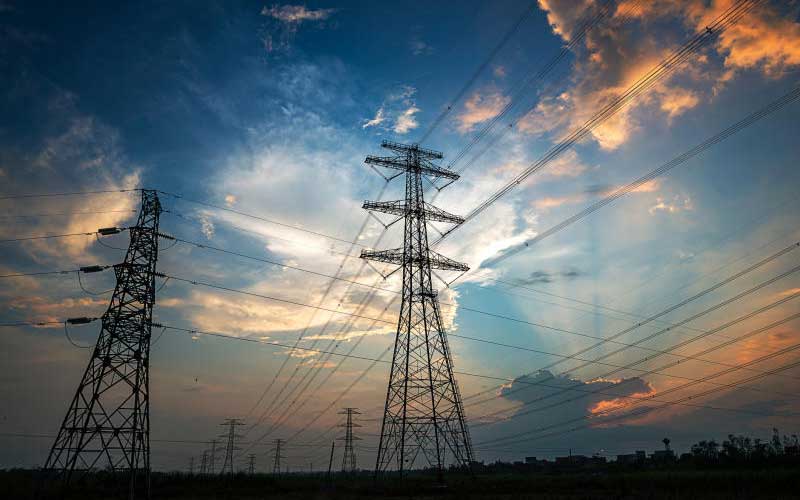
Our society is increasingly dependent upon electricity. Today, majority of companies and households rely on electricity to run their day to day operations.
As African economies evolve, the services sector is growing and electricity is a non-negotiable ingredient for businesses to operate efficiently.
Without a stable supply, businesses must juggle the logistics of having to generate electricity on site using expensive fuel. Ultimately, this impacts on the bottom line and hampers economic growth.
Across the continent, governments are focused on reducing the electricity generation deficit that has held back their economies and has been highly detrimental to development of small and medium-sized enterprises in the light manufacturing sector.
Kenya is in an interesting development phase with regards to its domestic energy requirements. In the past decade, the country has grappled with the challenge of unreliable, expensive and unsustainable energy use supporting a stagnating industrial and manufacturing base.
This is due to aging energy infrastructure that can no longer meet the modern-day requirements as envisaged in the country’s economic blueprint, the Vision 2030.
Rural Kenya, for instance, has for long been in the dark; disadvantaged in terms of energy supply. Most areas have not had connections to the electricity grid in the past or if they had, reliability of such electricity was somehow compromised.
Without electricity smallholder farmers, rural small enterprises and even big investors face barriers in adopting new technologies and linkages to markets and modern value chains that would allow them to grow their businesses and improve livelihoods.
The Kenya Electricity Transmission Company (Ketraco) has been on the track, extending the national power grid to every corner of the country and projecting to attain cumulative length of 16,100 by 2030.
A number of grid stabilisation projects and extension lines are being put in place to ensure a continuous balance between supply and demand and also take care of the reserves that would be used in case of contingencies.
The Western bound Olkaria-Lessos-Kisumu transmission line project which entails construction of a double circuit transmission line between Olkaria II and Kisumu (Mamboleo) substations via Lessos substation together with the associated substations – is one of our major undertakings that would be a game changer in the targeted region and play a pivotal role in the regional power pool upon completion.
The line evacuates reliable geothermal power which, apart from being associated with many environmental benefits such as reduction of carbon emissions and environmental pollution, brings along numerous direct economic gains to the economy.
It is well known that geothermal plants can operate 24 hours a day with a steady output, regardless of environmental conditions and are not subject to the unpredictability and voltage swings that variable energy resources face and hence can fulfill the necessary role as a renewable baseload power source in the western region.
As aging baseload fossil fuel plants retire nationally, geothermal plants can provide the electricity these plants have historically provided to the power system. Baseload technologies provide important attributes for grid stability including inertia, voltage control, capacity and in geothermal power’s case flexibility.
This combination of firm and flexible power capability positions geothermal energy as an ideal candidate to fill several roles historically performed by emission-heavy fossil fuels, such as baseload, regulation, load-following and reserve functions.
In addition to considerable environmental advantages over fossil fuels, geothermal plants generally lack the fuel costs of other baseload sources, or the ancillary and transmission costs associated with variable energy resources that often equate to the long-term stability in energy costs.
To this end, the western Kenya region is being re-positioned as a major investment destination with vast improvement to various sectors of the economy thanks to timely arrival of reliable and efficient energy supply from the project that is also expected to facilitate power exchange between Ethiopia, Kenya, Uganda and Rwanda.
Once completed, the region’s sugar sector, hospitality industry, transport (including the port of Kisumu), aviation, cotton, fishing, mining, construction and health sectors are set to grow to their full capacities due to the abundance of reliable, efficient and available power. This would spur serious economic turn-around with opportunities for employment and trade.
 The Standard Group Plc is a multi-media organization with investments in media
platforms spanning newspaper print operations, television, radio broadcasting,
digital and online services. The Standard Group is recognized as a leading
multi-media house in Kenya with a key influence in matters of national and
international interest.
The Standard Group Plc is a multi-media organization with investments in media
platforms spanning newspaper print operations, television, radio broadcasting,
digital and online services. The Standard Group is recognized as a leading
multi-media house in Kenya with a key influence in matters of national and
international interest.
 The Standard Group Plc is a multi-media organization with investments in media
platforms spanning newspaper print operations, television, radio broadcasting,
digital and online services. The Standard Group is recognized as a leading
multi-media house in Kenya with a key influence in matters of national and
international interest.
The Standard Group Plc is a multi-media organization with investments in media
platforms spanning newspaper print operations, television, radio broadcasting,
digital and online services. The Standard Group is recognized as a leading
multi-media house in Kenya with a key influence in matters of national and
international interest.










